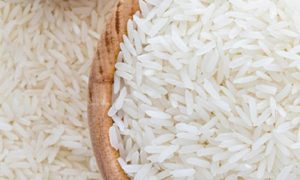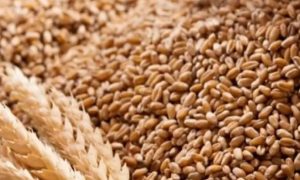Pakistan : From July 2024 to June 2025: Sugar mills make Rs300bn windfall profits since export allowed, PAC told

PAC revealed 67 sugar mills exported 746,469 tons worth \$400 million, causing domestic prices to rise from Rs143 to Rs173/kg. Lawmakers demanded accountability as mills earned Rs300 billion in windfall profits. JDW led exports. Accusations of monopoly and political favoritism intensified, with calls for reforms and import plans initiated.
ISLAMABAD: A list of sugar mills that exported sugar between July 2024 and June 2025 was presented in the Public Accounts Committee (PAC) on Tuesday, revealing that 67 mills exported over 746,469 tons of sugar worth more than $400.02 million (Rs111.97 billion).
During the meeting, chaired by PAC Chairman Junaid Akbar Khan, lawmakers highlighted the contradiction between export policies and local market needs, emphasising the imbalance between domestic supply and commercial interests. They called for accountability, transparency and immediate measures to protect consumers from artificial shortages and price manipulation.
The committee was informed that recent fluctuations in sugar prices led to massive profits for mill owners, with the Auditor General of Pakistan (AGP) report estimating that sugar mills earned approximately Rs300 billion in windfall gains. The PAC chairman pointed out that only 42 families benefited from this profit surge, raising serious concerns over market monopolies and government regulation. “Why is no one else allowed to set up sugar mills?” he questioned, criticising the lack of competition in the sugar sector. According to official documents presented in the PAC, JDW Sugar Mills emerged as the top exporter, shipping 73,090 metric tons (73.09 million kg) worth Rs11.1 billion. Tandlianwala Sugar Mills followed with 41,412 metric tons (Rs5.98 billion), while Hamza Sugar Mills exported 32,486 metric tons (Rs5.03 billion). Other major exporters included Thal Industries Corporation Limited (29,107 metric tons, Rs4.55 billion), Almoiz Industries (29,453 metric tons, Rs4.32 billion), JK Sugar Mills (29,969 metric tons, Rs4.09 billion), Madina Sugar Mills (18,869 metric tons, Rs2.79 billion), Fatima Sugar Mills (17,365 metric tons, Rs2.68 billion), Daharki Sugar Mills (16,533 metric tons, Rs2.45 billion), Ramzan Sugar Mills (16,116 metric tons, Rs2.41 billion), Indus Sugar Mills (14,047 metric tons, Rs2.10 billion), Ashraf Sugar Mills (11,317 metric tons, Rs1.67 billion), Shakarganj Limited (7,867 metric tons, Rs1.13 billion), Unicol Limited (6,857 metric tons, Rs1.02 billion), and Habib Sugar Mills (6,253 metric tons, Rs960 million).
The PAC meeting saw heated exchanges as members dissected the sugar crisis, uncovering billions in profits for a select few mill owners while criticising government policies and industry practices. The committee expressed strong displeasure over the ongoing crisis and the steep rise in domestic sugar prices.
The industries and production secretary informed the PAC that Pakistan produced 7.66 million metric tons of sugar last year, with a surplus of 1.3 million tons. Of this, 500,000 metric tons were reserved for the following year, while the federal cabinet and the Economic Coordination Committee (ECC) approved the export of 790,000 metric tons in three phases, earning over $400 million in foreign exchange.
At the time of the export decision, the domestic market price was Rs143 per kilogram, but it has since surged to Rs173 per kilogram, sparking concerns among lawmakers.
The PAC members noted that sugar had virtually disappeared from the market, with remaining stocks being sold at exorbitant rates. They criticised the recurring cycle of sugar exports and imports over the past decade, accusing it of exploiting consumers. “Why were sugar mill owners granted subsidies for exports?” questioned Chairman Junaid Akbar Khan.
PAC member Riaz Fatyana alleged that the nation had been defrauded of Rs287 billion due to price manipulation, while Moin Aamir Pirzada accused the “sugar mafia” of being embedded within successive governments.
The industries secretary clarified that sugar regulation falls under provincial jurisdiction, though federal and provincial representatives sit on the Sugar Advisory Board alongside industry stakeholders. He added that the crushing season runs from November 15 to March 15, with stock and production data provided by provincial authorities.
When pressed on tax exemptions granted through SROs, ministry officials remained cautious. Sanaullah Mastikhel demanded clarity on beneficiaries, suggesting nationalising sugar mills under public administration.
Chairman Junaid Akbar pressed the secretary on why subsidies were provided for sugar exports and why details of mill owners had not been submitted. “We had asked for the list of sugar mill owners. Where is it?” he demanded.
The secretary responded that a list of sugar mills was available, but the chairman insisted on including owners’ and directors’ names.
The committee was further informed that the government now plans to import 300,000 tons of sugar (down from 500,000 tons) through open tenders, with no restrictions from the IMF. The National Food Security secretary confirmed Pakistan currently holds 1.9 million tons of sugar, with imports scheduled for September.
The meeting turned contentious when lawmaker Malik Amir Dogar accused top political families of owning most sugar mills and benefiting from government policies. “The largest number of sugar mills belong to Asif Ali Zardari, followed by Jahangir Tareen and then the Sharif family,” he alleged, sparking sharp reactions.
PPP’s Shazia Marri challenged Dogar to prove his claims, while PMLN’s Afnanullah Khan accused him of selective criticism. Senator Bilal Mandokhail intervened, urging Dogar to retract his remarks.
To Read more about Sugar Industry continue reading Agriinsite.com
Source : The News
















